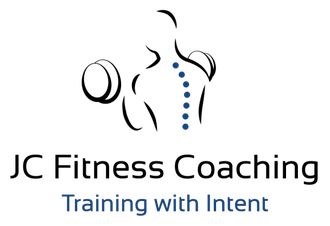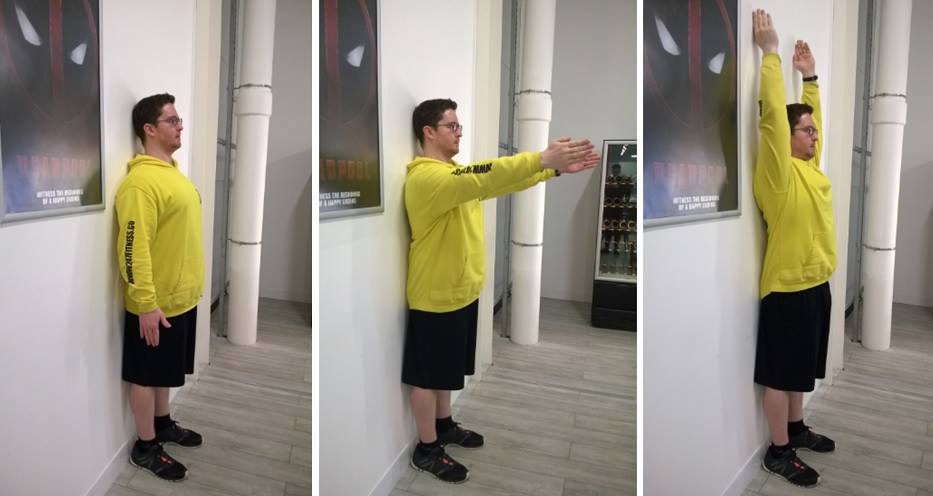|
When you hear the term "assessment" in a fitness setting do you instantly recall the horror of doing a bleep test at school and trying not to throw up in front of your class? Maybe you think it's more army based - how many press ups, sit ups and pull ups can you do in 2 minutes along with running 1.5 miles in less than a set time? Maybe you think it's sitting down and talking about your medical history whilst someone furiously scribbles away on a sheet on paper? (I kinda do this) Maybe you think it's all a waste of time and you should just get on with it in the gym... A few things to consider: 1) Everyone is different - some can overhead press, some can't. Some can squat all the way down to the floor, some can't. 2) You shouldn't try to force range of motion of an exercise if your joint anatomy won't let you because... see next point 3) I've worked with a number of people with shoulder, knee, hip and low back issues because they were blindly doing certain exercises that weren't right for them. Over time the joints take a beating until something gives way. If you cannot do an overhead shoulder flexion pain free and without compensating in the lower back, you might not be ready for overhead pressing. Where to start When you hire a personal trainer, a fitness assessment is an important part of the initial process. It may not be the sexiest thing in the world yet a properly conducted assessment can be a useful tool to helping you achieve your fitness goals in the best way possible. Even if you do not want to hire the trainer for sessions, going through an assessment can provide valuable insights to help you. Side note: If you sit down with a trainer and they do not go through at least some of these, maybe look elsewhere. What is in an assessment? Trainers approach assessments in different ways and for me they should cover the following in some way: - Medical Screen / PAR-Q. This is a basic health questionnaire that goes through the major red flags - do you have chest pains / dizziness / joint issues / pregnant / medical conditions etc. This tells the trainer what they may need to be aware of when putting you through a program / workouts. It may also flag up issues you weren't aware of and may need to get checked out. It wouldn't be the first time I've had a conversation like this: Me: "So you've ticked you experience chest pains when not exercising. Do you know what caused this or have you seen a doctor about it?" Person: "Not a clue and I didn't go to the doctors" Me: "Ok, well before I can put you through any exercise I need you to see the doctor first and provide a note stating you're cleared to exercise. - Movement assessment. These can be straightforward with little need to go way over the top in-depth "Hmm, your big toe points inwards 3 degrees more than normal". The underlying principle is to look at how different joints move by themselves and /or as part of an exercise pattern - is it within an acceptable range? Is there a difference between what you can passively do (someone moving a joint into a position) versus what you can actively do (you trying to get your joint in the same position)? Is there any pain with those movements? Are you able to do basic squat, lunge and hip hinge patterns? Are you flexible like a wet noodle or like an iron bar? Information like that can shape the individualised service to you and help to build your warm ups and workout programs whilst keeping you pain free. For example three of the biggest issues I see when running someone through an assessment are: 1) They shouldn't really do any straight overhead work right now such as barbell shoulder presses. Landmine shoulder presses may be a friendlier version. 2) Foot positions have a dramatic effect on the look and feel of doing squats. I've recently helped two people to reduce / remove hip pain when squatting, simply by altering their foot stance. 3) Hip hinge patterns need a lot of work (the way the hips and spine move during exercises such as Romanian Deadlifts and Kettlebell Swings. When I see other trainers neglecting these basics, I cry a little on the inside. Some people should squat with toes forward, some with toes out, some with one foot facing forward one pointing out. A good assessment will help to determine this.
- You, You, You I go through a series of questions to give an insight to your training experience, level of knowledge, likes , dislikes, availability, whether you prefer cats or dogs, and outside activities. The idea is that these questions are used to further build your workouts to make them as suitable to you as possible. It's like working to meet you where you're at: Person: "So how many times a week should I come to the gym?" Me: "How many times do you think you can get here?" Person: "Every day!!!!!" Me: "Ok, how many times do you realistically think you can get here?" Person: "2 times definitely, 3 times at a push" Another example: I've had people tell me they absolutely cannot stand mountain climbers and love doing lunges. So guess what I'm going to leave out of their programs and what I'm going to put more of in? Even the time of day makes a big difference to a training program. Have you ever visited commercial gym at 7 o'clock in the morning compared to 6 o'clock in the evening? Good luck getting on the cable machines and benches. - Cardio This can be important depending on client goals. For example if you're going in the military / police / prisons (officer not prisoner), you need to be able to beat a set distance within the given time and it needs focus. I deal with a lot of general population clients so cardio assessments do not need to be as detailed. That said, there is a general formula for maximum heart rate and % based training is given from this i.e. "work at 60% of your maximum heart rate". The formula is 220 - Age = Max Heart Rate This is pretty dated and there are more accurate methods and formulas available to help you work to a more suitable level so you're not selling yourself short in the gym. To summarise, assessments can be a highly useful (if not often overlooked) tool to individualise workouts to your specific needs, abilities and restrictions. They can help to identify issues and work around them to keep you training hard in the gym in a safe manner. The assessments themselves can be tailored to the person as well. I.e. a 30 year old mum wanting to lose weight and get stronger would have a slightly different assessment to a professional athlete who would have a slightly different assessment to someone training to get into the army or police force.
0 Comments
Leave a Reply. |
AuthorThis is my, mostly, Personal Trainer musings and information which I hope you'll find helpful! Archives
May 2021
Categories |
Support |
© COPYRIGHT 2020. ALL RIGHTS RESERVED.
|



 RSS Feed
RSS Feed